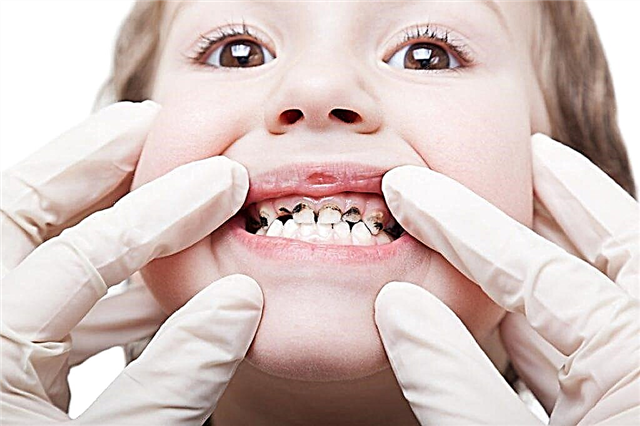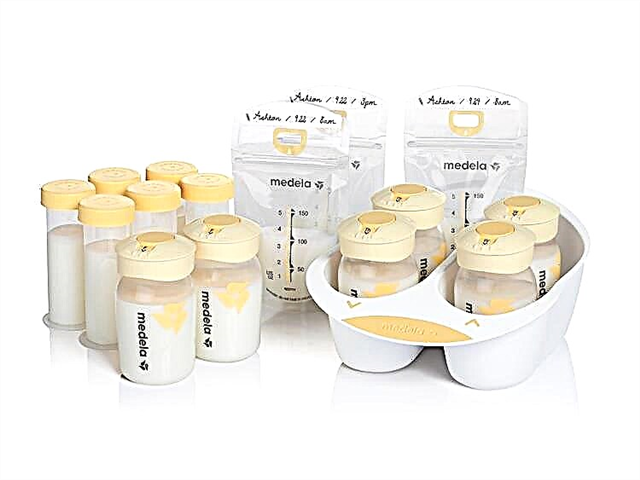
The doctor whose visit inspires fear in most Russian parents is a neurologist. Moms and dads are afraid that this particular specialist will surely find some kind of neurological abnormality in their beloved child. And these fears are not so groundless - according to statistics, 90% of babies in our country have one or another neurological diagnosis. Is this diagnosis always reliable and whether neurological problems are really so widespread, the famous children's doctor Yevgeny Komarovsky tells parents.
Features of the children's nervous system
The nervous system of the newborn undergoes the most significant changes during the growth process. Children are born with an immature nervous system, and it has yet to form, get stronger. The most intense changes occur in the neonatal period and the first year of life, and therefore it will not be difficult for any neurological doctor to find certain neurological symptoms in a baby at 2 months or 6 months.
During the period of the formation of the functions of the nervous system, not everything goes smoothly, says Evgeny Komarovsky, hence the incomprehensible cry for an incomprehensible reason, spasms and tics, hiccups and regurgitation, which give parents so much experience and rich food for the activities of doctors.
If mothers understand the seriousness of the processes taking place with the child, questions, fears and doubts will become much less.

The brain of a newborn is rather large in comparison with the body, as the child grows, the proportions change, the structure of the brain becomes more complex, additional grooves appear.
The most active changes occur between birth and 5 months.
The spinal cord and spine of the baby grow unevenly, and their growth evens out at their own pace only by 5-6 years. The speed of transmission of nerve impulses in the child's nervous system is different than that of an adult, and in accordance with mother's and father's, it will come only by 6-8 years.
Some reflexes that a newborn has, go away over time and by the year they are gone, they are replaced by constant reflexes. The sense organs in newborns function from the first minutes after birth, but not in the same way as in adults. For example, a baby begins to see clearly at about 1.5-2 months, and he can hear well already on the third day after birth.


Neurological problems
When mothers with complaints of a trembling chin of a child, shaking hands or regular hiccups come to the doctor, he understands perfectly well that in 99% of cases such symptoms are a variant of the norm, given the intensive process of improving the nervous system. The doctor knows that these little "troubles" are likely to go away on their own, and perhaps very soon. But he, according to Komarovsky, does not want to take responsibility for your child, and therefore it is easier for him to say that a shaking chin is a neurological symptom, and to prescribe a certain treatment, from which there will be no harm (massage, swimming in an inflatable circle on the neck, vitamins).
Real neurological problems, of course, exist, and they are all, without exception, very serious, says Komarovsky, but they occur in only 4% of children.
Therefore, most of the neurological diagnoses made to babies by neurologists in the clinic at the next routine examination have little to do with real diseases.
Worst of all, the doctor prescribes medications for the child to eliminate neurological symptoms, which by and large exist only on paper.
Real situations when such pills are needed - no more than 2-3% of all diagnoses. But they are accepted by all to whom they are registered.
Komarovsky considers effective drug treatment only for children of the first month of life, if they really have serious disorders during childbirth. Then even they are shown only massage and physiotherapy.

When does the problem really exist?
Intracranial pressure is a diagnosis that people like to give to children in Russian polyclinics. Then, when it really is, the child needs urgent hospitalization, and not home treatment with pills, says Komarovsky. If a child is cheerful, vigorous, active, sociable, there is no need to treat him with intracranial pressure, since it is most likely not there at all.
The most common complaint that parents turn to a pediatric neurologist is their child's fear.


With this, in most cases, the search for the disease begins, which, most likely, will be found.
Komarovsky urges mothers to stop looking for illnesses in the child and just understand that a child has a lot of other reasons for a cry - hunger, fever, a desire to communicate, a desire to attract attention, an uncomfortable diaper, and so on. All these reasons have nothing to do with neurological diseases.
Very active children are considered sick, they are immediately diagnosed with "hyperactivity", calm and sluggish children are considered unhealthy, they are branded as "lethargic", they are trying to explain poor sleep and appetite with neurological problems. You don't need to do this, says Evgeny Komarovsky, Since true neurological diseases are rare and sound menacing, probiotics and gymnastics do not cure them.
These include epilepsy, cerebral palsy, neuroses of varying severity, Parkinson's disease, encephalopathy, pathological involuntary nervous tics and other conditions, many of which are congenital.

Doctor Komarovsky's advice
There is no need to compare your child with other children and the norms of development of babies existing in theory. Your child is a personality that develops in accordance with its internal "settings", they are purely individual.


The best prevention, and at the same time the treatment of supposedly neurological "problems" that exist only on the paper of a doctor and in the heads of a restless mother and grandmother, is the correct way of life for a child.
Long and regular walks, bathing, hardening, reasonable nutrition (without overfeeding), a daily routine convenient for mom and child, which is strictly observed, a strengthening massage every day, will help to cope with hyperactivity, and with a trembling chin, and sleep disturbances in the child.
Avoid overdosing with calcium and vitamin D, as these conditions can indeed cause certain problems with the nervous system. You should talk about this in more detail with the attending pediatrician, who will determine the necessary dosages for your particular child, taking into account the age, weight and health of the baby.
You will learn more about the opinion of Dr. Komarovsky on neurological problems in children in the following video.



